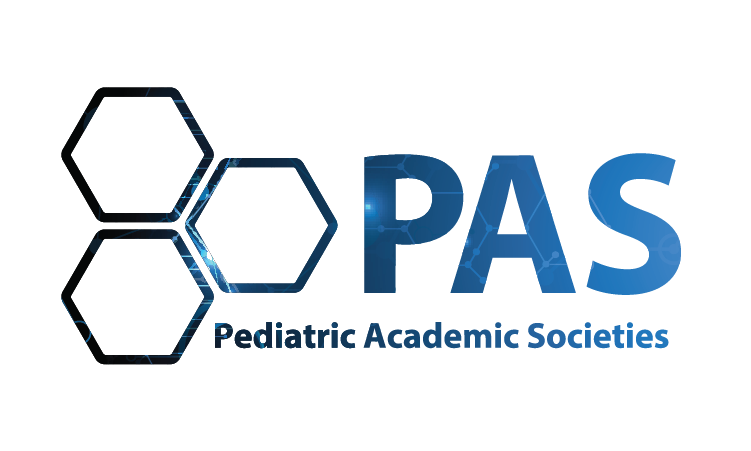CROSS DISCIPLINARY SPOTLIGHT & LEARNING PATHWAYS
PAS is focused on developing ways to improve collaboration, discovery, engagement, and networking at the PAS Meeting.
Cross-Disciplinary Spotlight: We encourage the submission of cross-disciplinary presentations that engage multiple viewpoints to address high-interest topics. Some examples:
- In-depth, updated presentations about peanut allergy management, involving bench research, clinical care delivery, advocacy, and community involvement relevant to managing children with severe peanut allergy.
- Workforce pipeline development and related issues common across pediatric subspecialties.
- Approaches to genetic analytics in patients with intellectual and developmental disabilities.
- COVID-19 findings/research that is interdisciplinary in approach.
- Diversity, equity, and inclusion
- Racism and academic pediatrics
- The intersection of pediatric hospital medicine and pediatric emergency medicine topics
- Cardiology and neurodevelopment for long-term outcomes of cardiac surgery or pediatric cancer survivors
- Nutrition in the PICU
- Telemedicine and technology for distanced-care delivery, ranging from primary care to intensive care
- Behavioral health integration as an approach to multi-disciplinary research
- Oral health equity and access
- Multidisciplinary treatment of obesity
- Health equity across disciplines
Learning Pathways – PAS 2021
The new Learning Pathways below provide a mechanism for identifying content throughout the program. You are encouraged to employ these over-arching concepts as you develop your submissions. As you do so, keep in mind how basic, clinical/translational, and health services research topics relate to each pathway.
- Advocacy Pathway: Highlights population and community health, public policy, social determinants of health, integrated care pathways (across community foundations, education and healthcare delivery organizations), and emerging topics relevant to child health. Includes topics relevant to life span, value-based care, and quality improvement science.
- Basic Science Pathway: Focuses on foundational science research based on hypothesis-driven experimental design.
- Career Development Pathway: Highlight resources and strategies for building and evolving a medical professional career, including leadership, transitioning between academic levels, working in the industry, and mentoring opportunities to strengthen the physician-research pipeline.
- Clinical Research Pathway: Highlights up-to-date clinical practice standards in child health, including clinical trials, global health care delivery, clinically integrated pathways, and care standards, and clinical scenario simulations, especially those focused on bench to bedside and back.
- Cross-Disciplinary Spotlight: Indicates sessions that take a broad approach to examining a complex problem, especially those that are of interest to multiple specialty areas.
- Digital Therapeutics Pathway: Highlights EHR utilization, telehealth, eHealth applications, big data analytics, and evidence-based therapeutics driven by high-quality software programs and wearable technologies to prevent, manage, and/or treat medical issues (i.e. adherence).
- Education Pathway: Focuses on best practices and innovations in medical education for all participants, including diversity, development, equity, implicit bias in practice, and physician burnout and work-life balance issues.
- Epidemiology & Health Services Pathway: Health services that examine the use, costs, quality, accessibility, delivery, organization, financing, and outcomes of health care services to increase knowledge and understanding of the structure, processes, and effects of health services for individuals and populations; epidemiology studies on the distribution and determinants of health-related states or events in specified populations.
- Trainee Pathway: Focuses on career development, networking, skills development, and informational sessions that foster mentor/mentee interactions.
ROUNDS WITH EXPERTS
A new PAS lab pilot program led by 20-30 experts that allow attendees to come together with faculty leaders to discuss a variety of topic areas, share their perspectives, and build relationships. Topics will include career development and issues at the forefront of pediatric research.
TRAINEE ZONE
The Trainee Zone provides a designated online meeting place with opportunities to connect, network, and learn. PAS trainees can watch live and on-demand talks from institutions, schedule appointments with institutional leadership, learn about job postings and participate in networking rooms within the zone.
PAS SPECIAL INTEREST GROUPS (SIGs)
For PAS 2021, six PAS Special Interest Groups are being piloted to address the interdisciplinary discussion of critical research, practice, and advocacy areas. Session submission is limited to the leadership of the following groups:
PAS SIG: Adolescent Health
PAS SIG: Behavioral Health
PAS SIG: Environmental Health
PAS SIG: Global Societies in Pediatrics Across Networks (G-SPAN)
PAS SIG: Maternal Child Health
